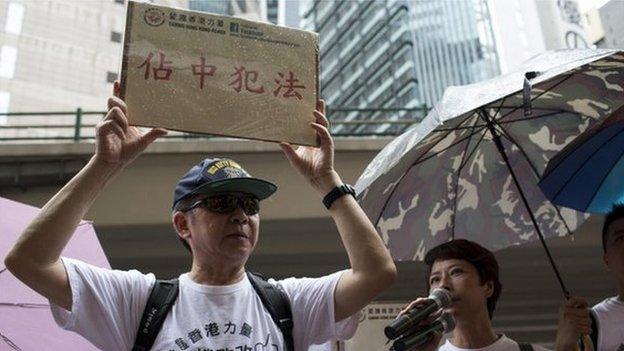Hong Kong: Why there is chaos in parliament
- Published
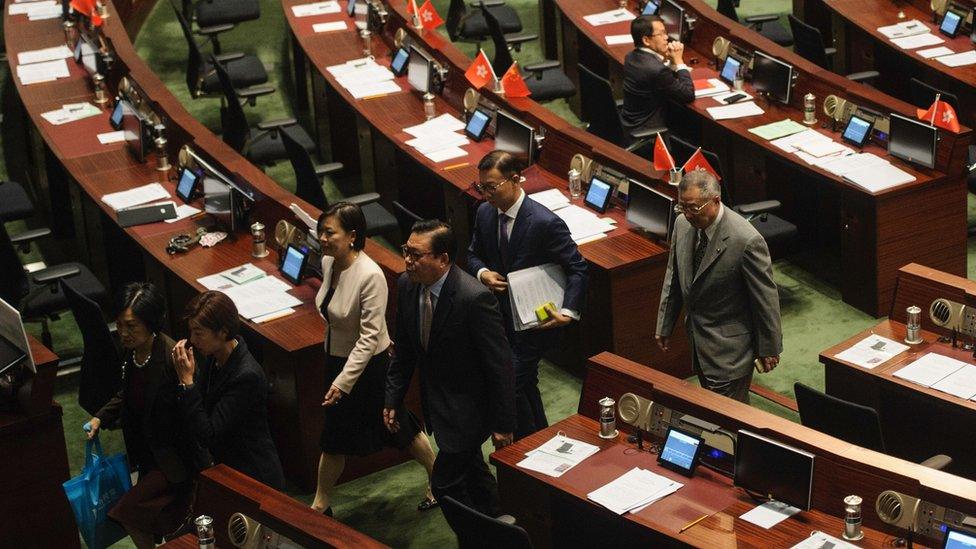
Dozens of lawmakers in the legislative council staged a walk-out on Wednesday after just 19 minutes
From swearing to throwing luncheon meat, unprecedented scenes have been playing out in Hong Kong's lawmaking body - the Legislative Council.
On Wednesday, dozens of lawmakers staged a walk-out ahead of a second attempt to swear in newly elected pro-independence lawmakers.
On the surface, the row is over the oath lawmakers have to take.
But it has brought to the fore the deep divisions between those who accept and those challenging Chinese control.
What exactly is the problem with the oath?
Hong Kong has been governed under the "one country, two systems" principle since it was returned to China in 1997.
It means that Hong Kong enjoys certain freedoms not granted to mainland Chinese, but crucially its leader is selected by a mostly pro-Beijing committee.
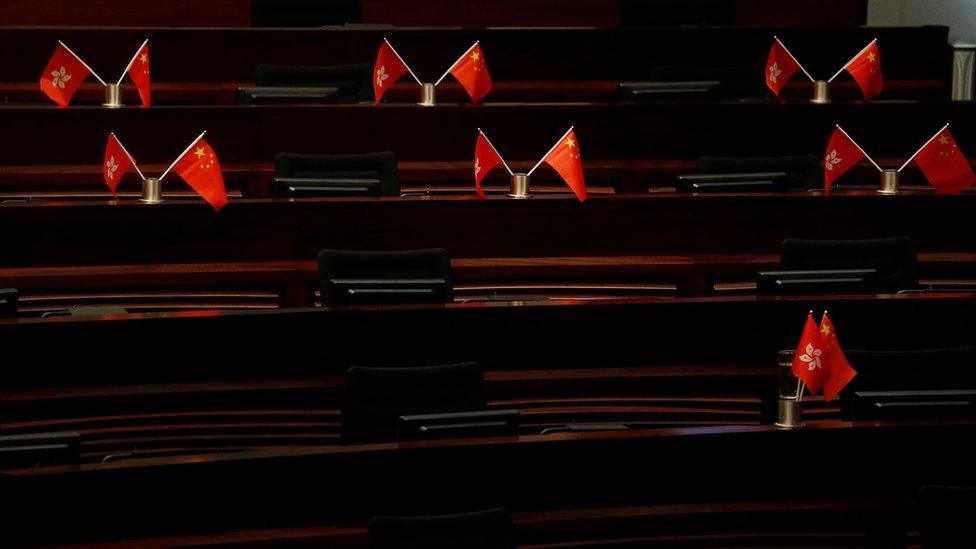
It is now unclear when the swearing in will take place
But in September, two members of the new political party Youngspiration were elected to the LegCo.
They identify themselves as "localists", a movement which objects to what followers see as a gradual encroachment of mainland China in Hong Kong politics and culture.
These Youngspiration MPs are at the more extreme end of that, and want total independence for Hong Kong.
So they decided they could not swear the oath in its current form, which is this:
"I swear that, being a member of the Legislative Council of the Hong Kong Special Administrative Region of the People's Republic of China, I will uphold the Basic Law of the Hong Kong Special Administrative Region of the People's Republic of China, bear allegiance to the Hong Kong Special Administrative Region of the People's Republic of China and serve the Hong Kong Special Administrative Region conscientiously, dutifully, in full accordance with the law, honestly and with integrity."
So what did they do instead?
Last Wednesday, when Sixtus Leung, 30, and Yau Wai-ching, 25 were being sworn in, they altered the oath to reflect that they do not accept Hong Kong as a territory of China. They swore while saying it and provocatively mispronounced China.
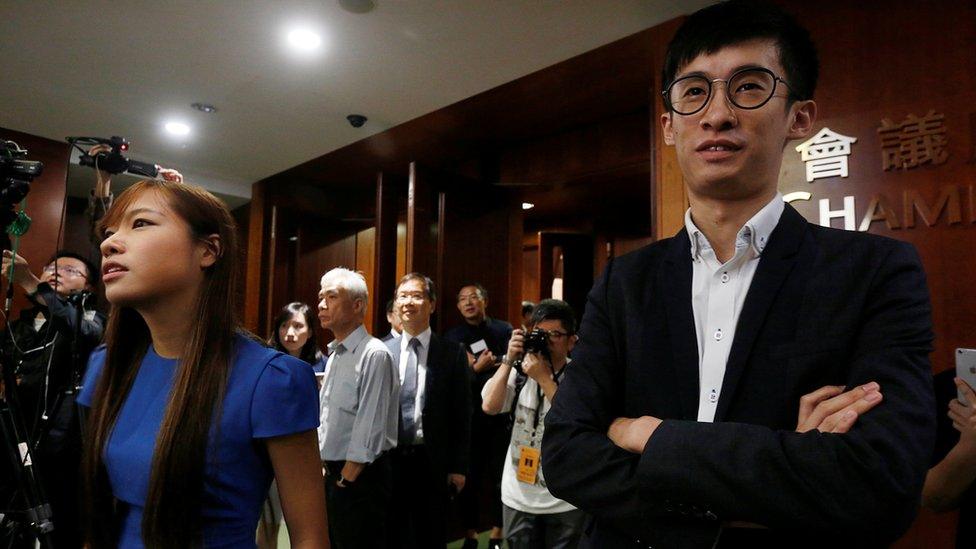
Activists Sixtus 'Baggio' Leung (R) and Yau Wai-ching (L) altered the oaths in a series of different ways
They pledged allegiance to the "Hong Kong nation" and held up a banner that said "Hong Kong is not China".
Amid a furore in the LegCo chamber, their oaths were deemed invalid by legislative officials, and the swearing-in was put back a week.
So far so chaotic. So then what?
The government launched an unprecedented legal attempt to delay Mr Leung and Ms Yau's swearing in until a judicial review.
On Tuesday, the High Court rejected the request for a delay, paving the way for them to be sworn in on Wednesday. But it did agree to a judicial review.
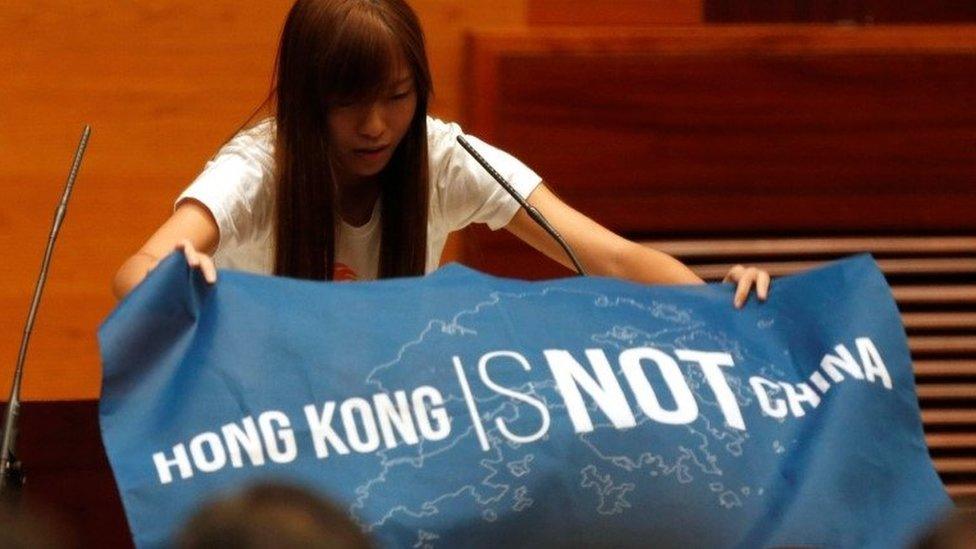
Two of the lawmakers are part of the "localist" movement that advocates for an independent Hong Kong
However, on Wednesday dozens of pro-Beijing lawmakers staged a walk-out before Mr Leung and Ms Yau were sworn in, demanding that the duo apologise for "insulting our motherland".
One of them, Holden Chow, told the BBC: "(Mr Leung and Ms Yau) have really gone too far. They actually provoked a lot of Hong Kong people. And also they are simply provoking all Chinese people so they do owe us an apology."
In retaliation another lawmaker threw pieces of luncheon meat at those walking out.
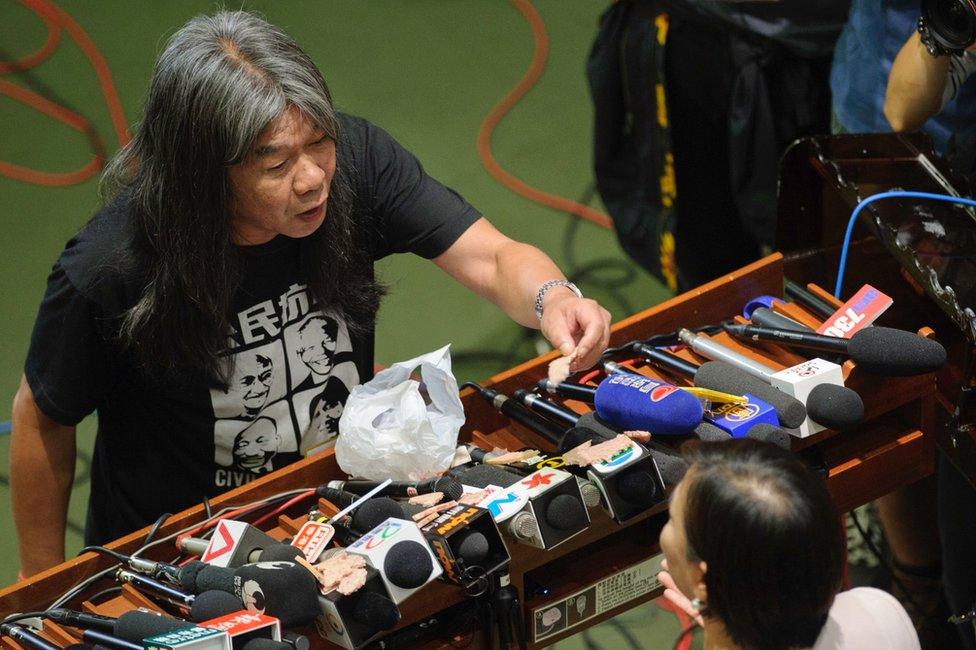
Pan-democrat Leung Kwok-hung, also known as Long Hair, threw the slices of luncheon meat
With them gone, there weren't enough lawmakers in the room for the oaths to take place.
It's unclear when the swearing in will now take place.
Mr Leung called the walk-out "stupid".
"I am not surprised that the government will put a lot of focus on both me and Yau Wai-ching but I think their action is a bit over (the top)," he told the BBC.
The BBC's Danny Vincent in Hong Kong says the two members of Youngspiration remain defiant but also appeared genuinely nervous about the possibility of losing their seats.
How did Hong Kong get to this point?
In 2014, mass pro-democracy street protests erupted, with thousands taking the streets for weeks demanding fully democratic elections for Hong Kong's leader.
The Umbrella Movement, as it came to be known, was led by young people who wanted their voices heard.
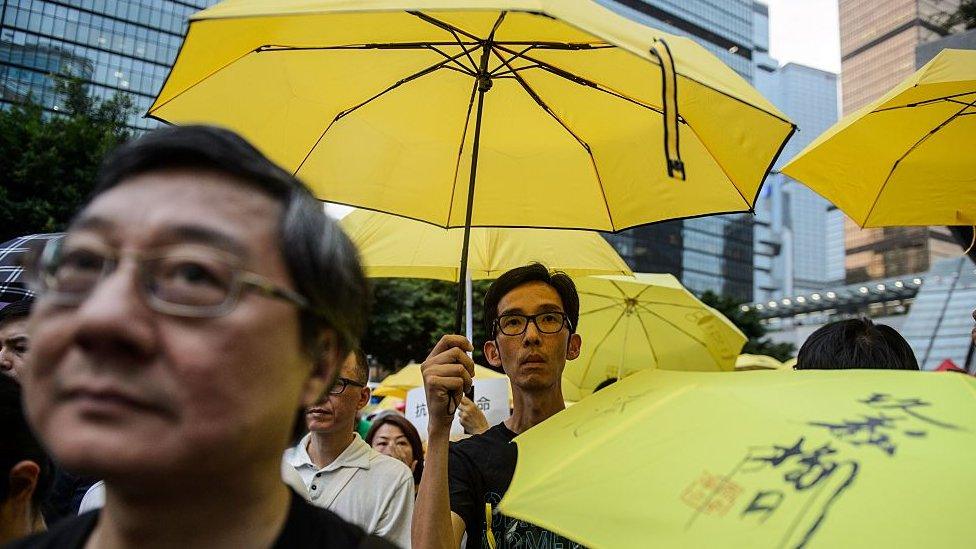
The Umbrella Movement is a symbol of the pro-democracy movement
After the mass demonstrations failed to win any concessions from Beijing, some of those protesters instead entered mainstream politics, to try to enact the change they wanted through constitutional means.
But some took a more hardline view, fearing that Beijing was tightening its grip and influence over Hong Kong and wanting to preserve Hong Kong's unique culture and freedoms.
In the last elections, a handful of those youth protesters, including both pro-democracy and pro-independence voices, won seats in the LegCo.
- Published19 October 2016
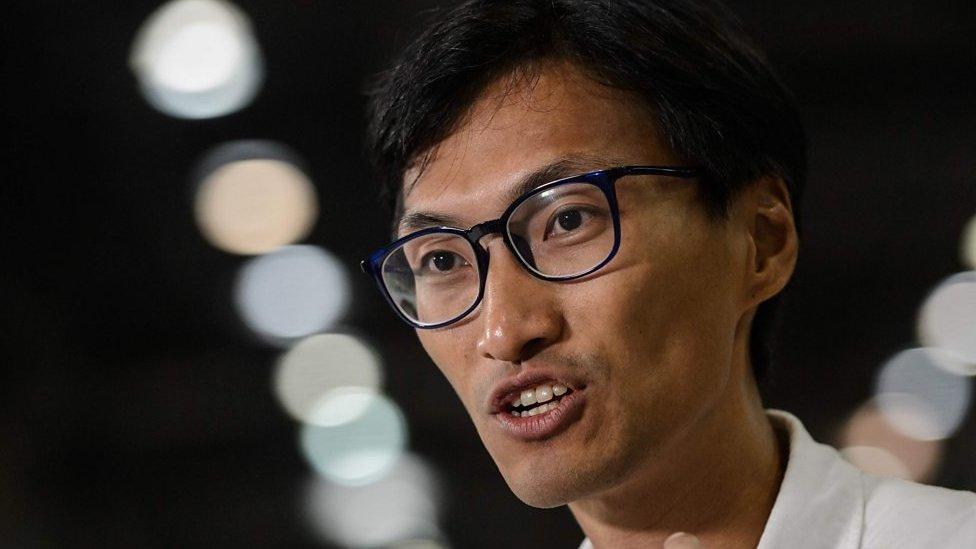
- Published18 October 2016
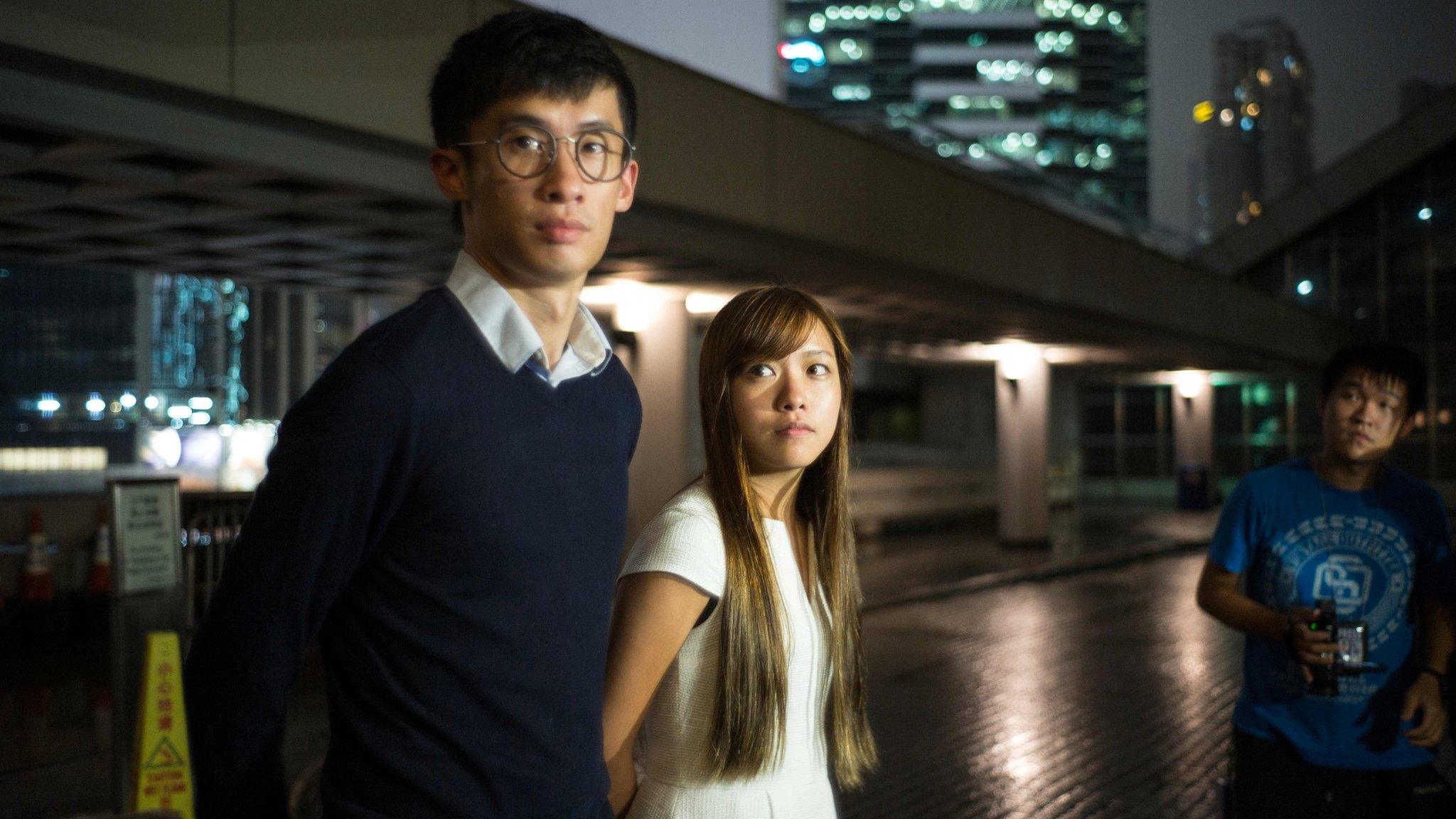
- Published12 October 2016
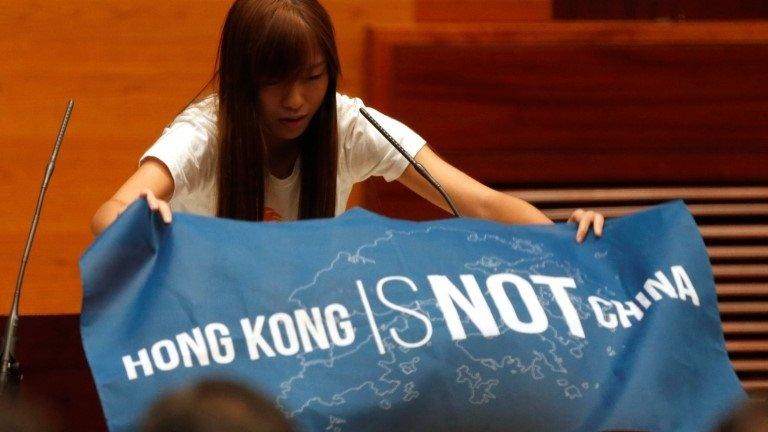
- Published5 September 2016
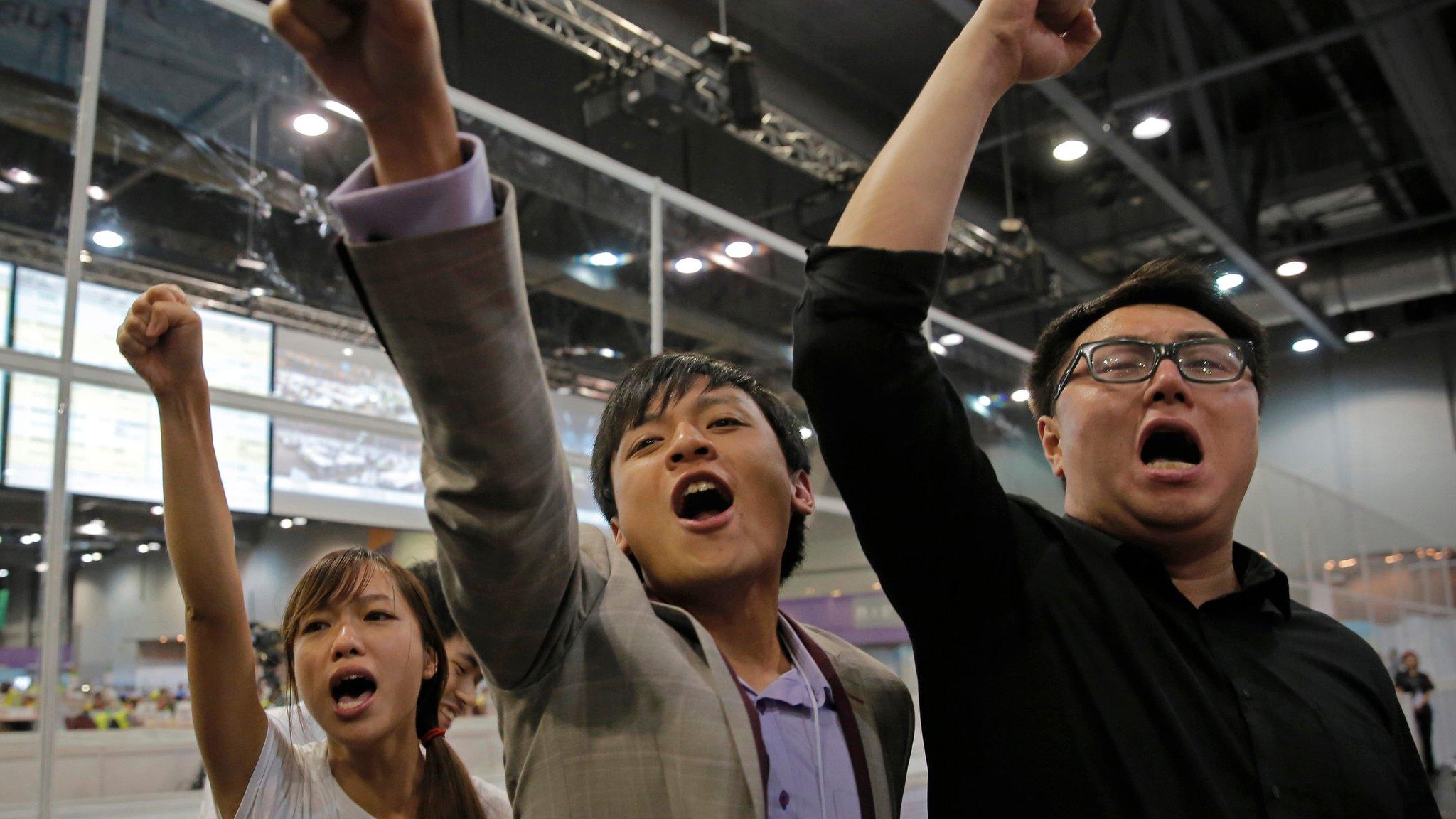
- Published18 June 2015
